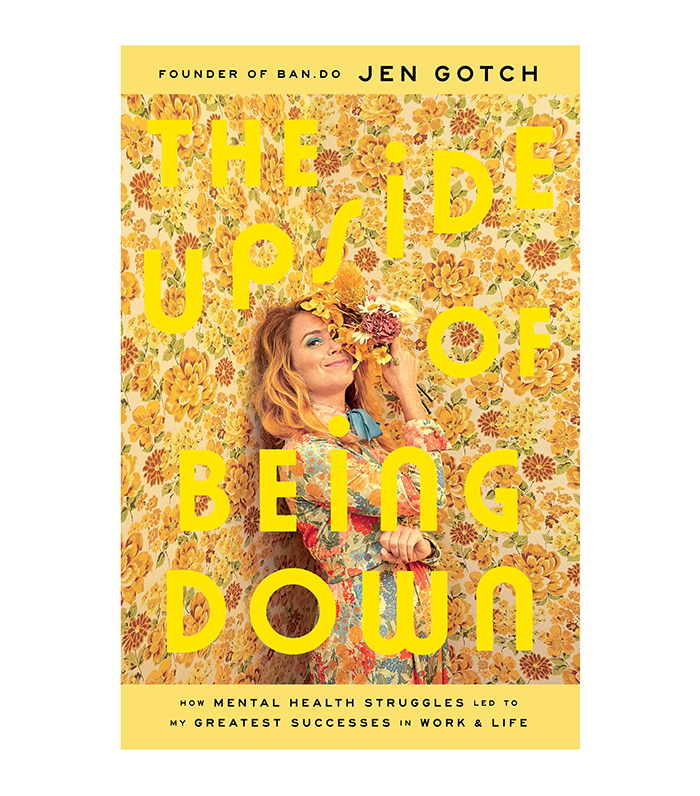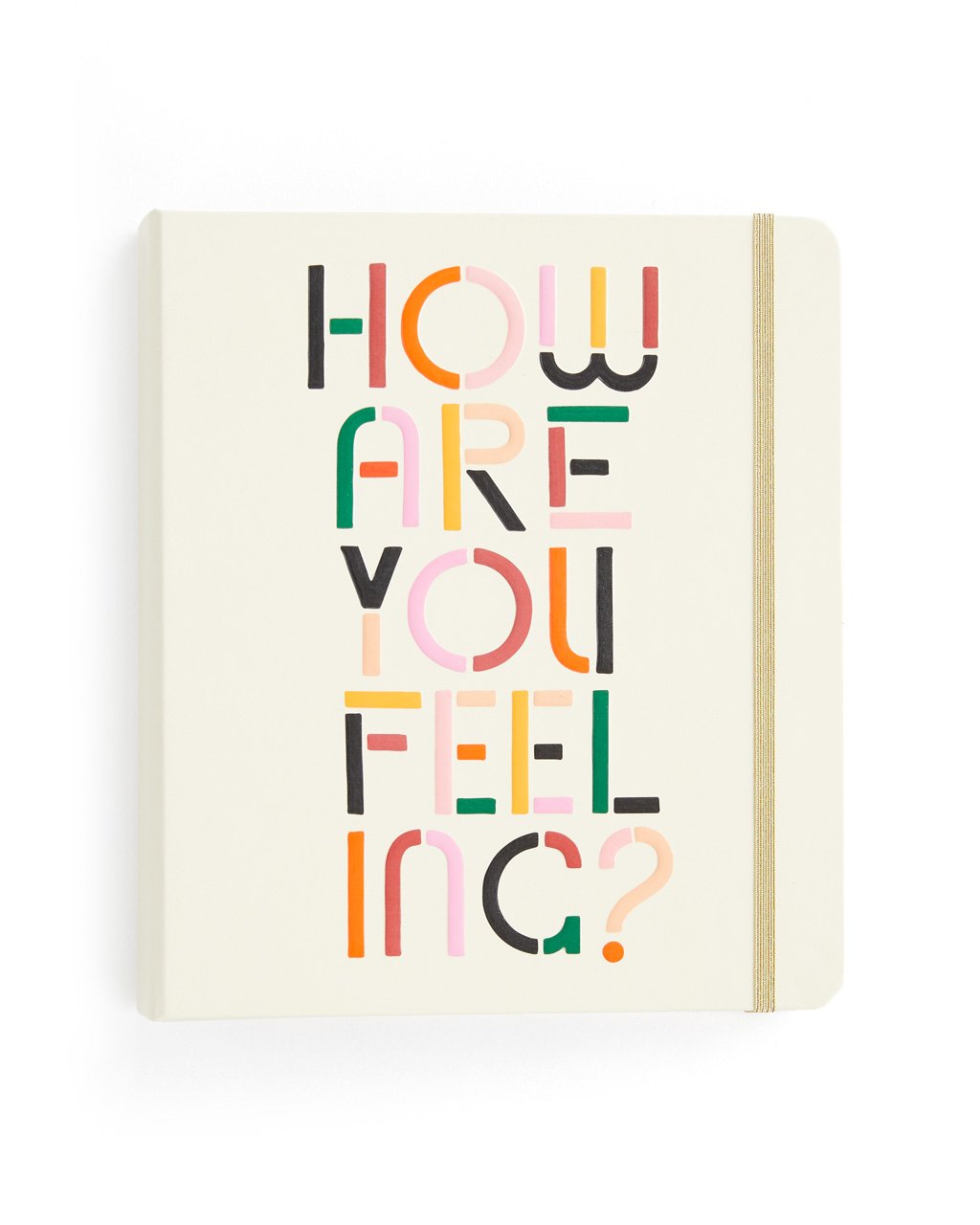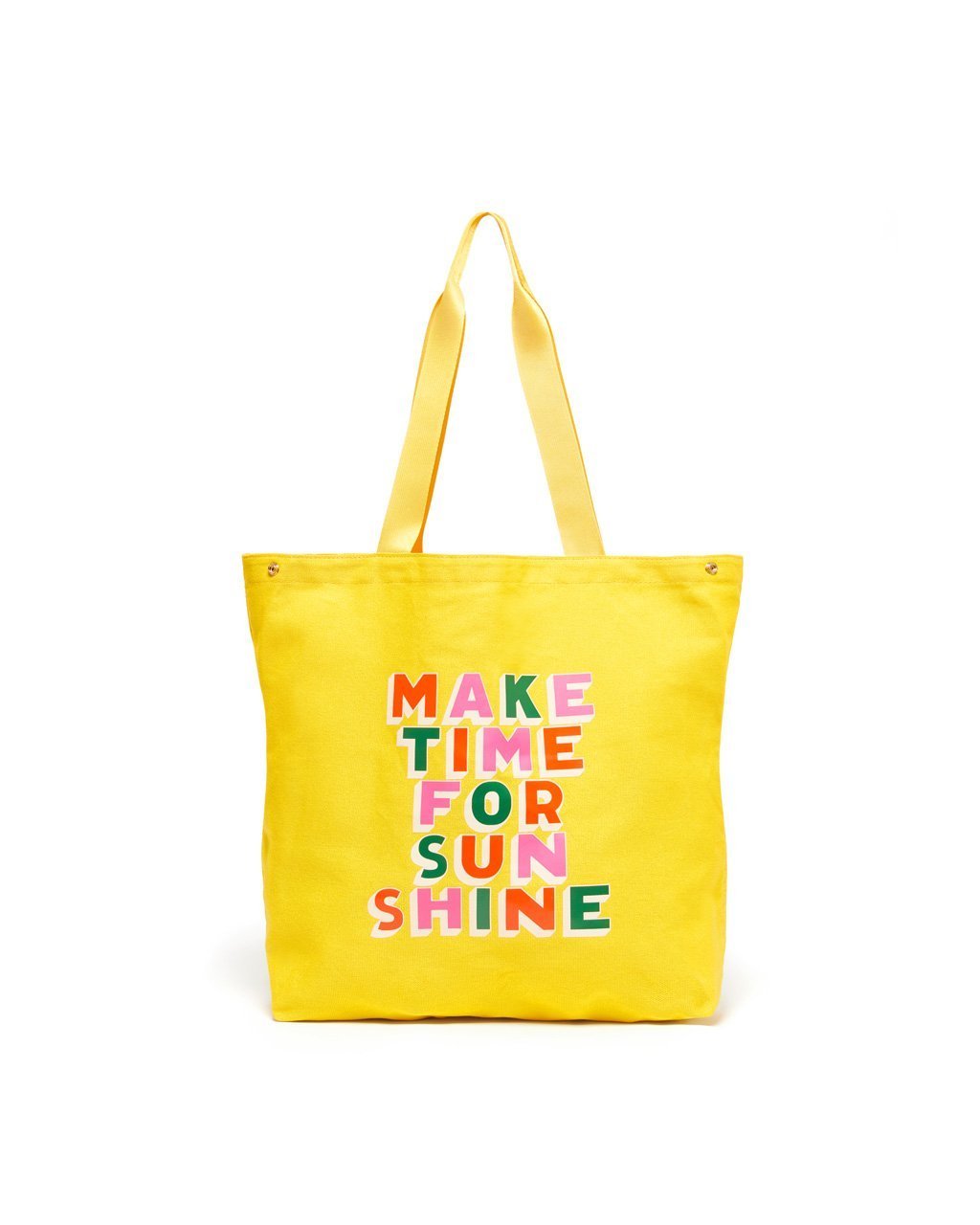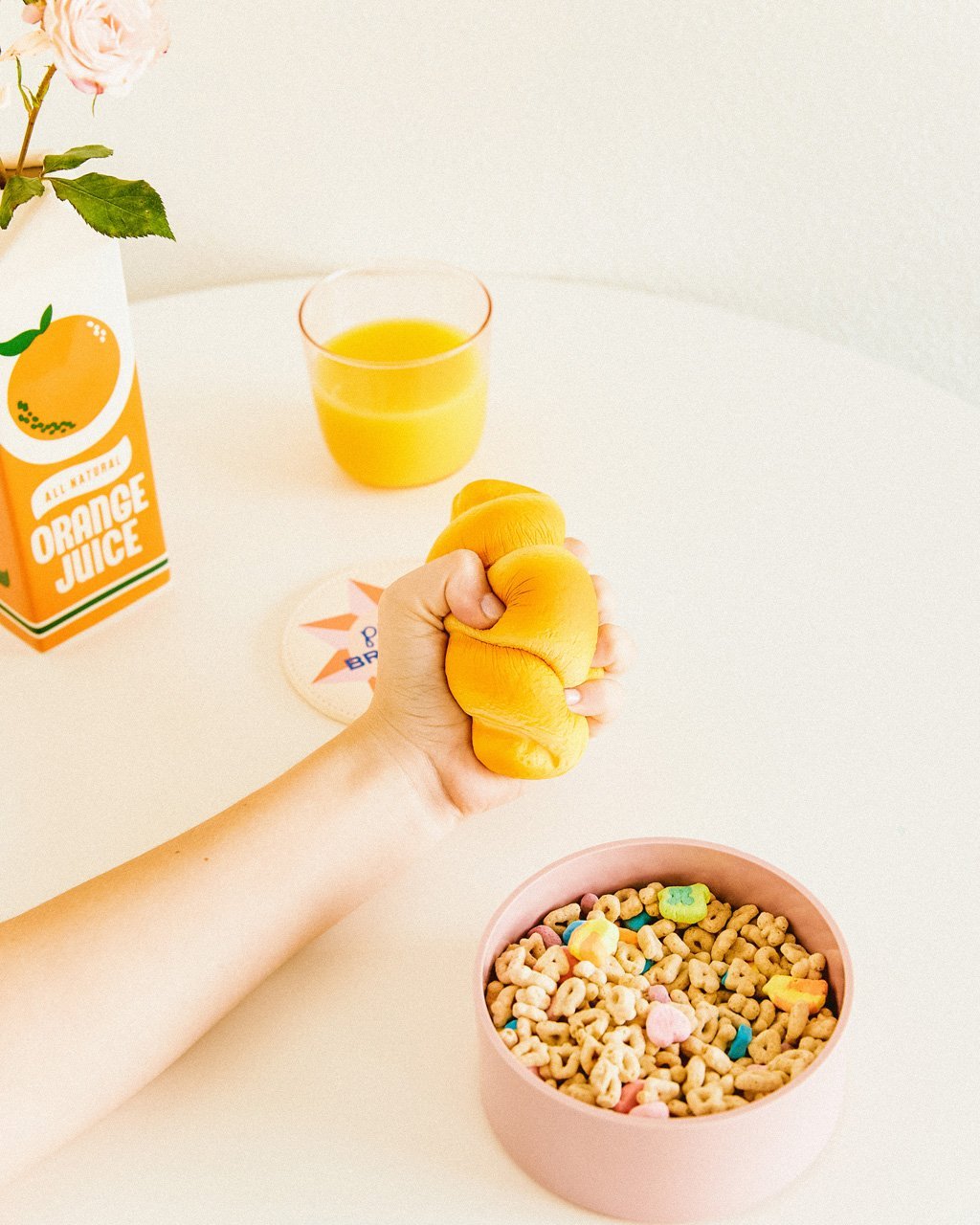Jen Gotch on Why It's Okay to Cry at Work
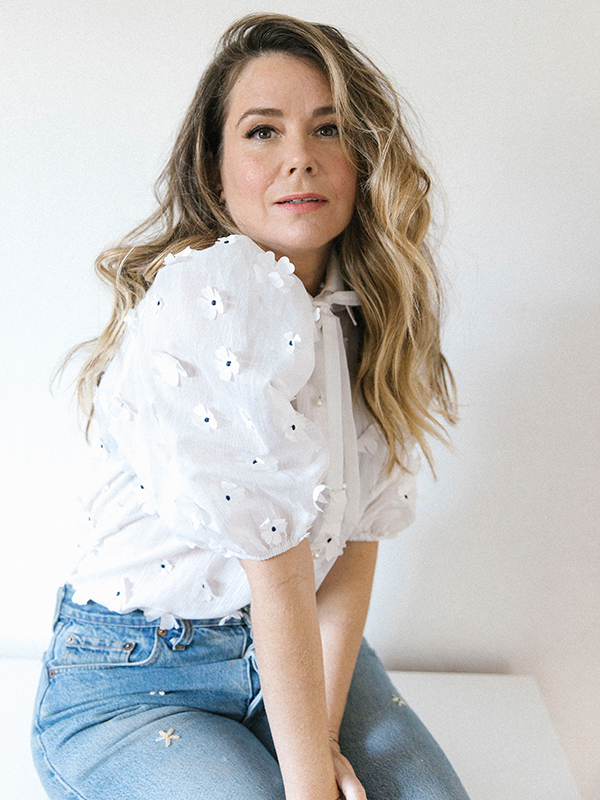
Jen Gotch is one of those people who, after only a couple minutes of talking with them, you feel at ease and that they might be your new friend. Or, at least, she's one of those interviews where it seems not so much like a chore or a job but rather like you're just shooting the shit with a pal. Also, I think it might be important to note that I interviewed Gotch on day five of my solo-living social distancing, and I really needed to talk to someone about anything and nothing. I didn't want to get off the phone. She was so cool about it and expressed the same sentiment. So maybe we are friends now?
Gotch is known for being the founder and chief creative officer of the extremely joyful brand Ban.do, but she's also gained a ton of admirers (including myself) for her honesty and humor on Instagram. She posts the sunshiny aspects of her life, but she's also not afraid to post the hard stuff, too. And her openness about her mental health and advocacy for others' is very real and relatable and also inspiring.
And now, Gotch is adding author to her résumé with her new book, The Upside of Being Down. Like many memoirs, hers details her childhood and career path and all the ups and downs in between, but she also focuses on her own mental health journey. One of the things that she touches on is her idea that it's okay to cry at work and that our fixation on "busyness" as a badge of honor is a total myth and lie. If you want a read that will make you laugh, help you feel better about yourself, and give you ideas on how to succeed but still be you, this is one to pick up.
I got to chat with Gotch about mental health at work, why it's important for her to share her own struggles publicly, what she thinks about burnout, and some of her advice for dealing with social distancing and staying at home more in our current climate.
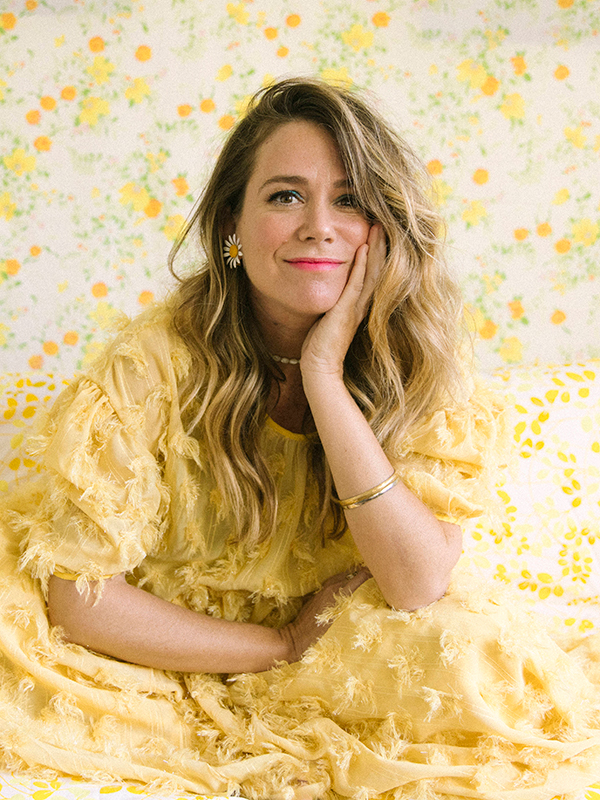
What are some things you do every day for your own mental health?
Stay on a schedule. Sleep schedules are really important for mental health, in general, especially if you struggle with mental illness. I also have just been trying to get up and have a morning routine, which for me right now is just making some matcha, sitting quietly, looking outside, petting my animals, and checking my emails. And then also just getting dressed for work because you can start getting yourself in the mindset of just being in pajamas [if you work from home].
Beyond that, I make my bed every morning, which seemed so inconsequential but really was something I started doing only a few years ago, and I'm 48. I never made my bed. I was like, "Why would I make it if I'm getting back in it and messing it up?" And my friend was like, "You will be surprised how good you feel if you do it." And she was so right. It literally takes 30 seconds, and you feel like you've done something. I do it right when I get out of bed, and then at night, you get into a made bed.
And I would say, the other two things that are broader—as you can tell I have a list of about 500 things that I do because my mental health is really important to me—but I think now more than ever, really paying attention to your thoughts, trying to regulate them, distance yourself. Now we have a lot of time on our hands, a lot of time to worry, whether it's about work, the world, our families, or our health, but really gaining a perspective on those thoughts and not feeling like you have to actually have a reaction and an emotion attached to each one of them. For me, learning to do that, which is something that I learned a couple of years ago while I was going through a really hard time, has changed everything for me, especially if anxiety is one of the mental health issues that you're trying to protect yourself from.
And then optimism—trying to find even just a sliver of light in any situation. And it's almost a way to counteract what I was just talking about—sort of pivot your thinking to be like, "What could be good about this right now?" Sometimes it's hard. It's going to be really hard right now, but it's there.
You talk a lot about optimism in your book and how you are naturally optimistic. When work gets tough or stressful, do you have any coping mechanisms, mantras, or techniques that you use to stay optimistic?
The type of optimism that I think is the most empowering is realistic optimism. I think, at times, optimism can be misconstrued as like, "Today is going to be a great day," and meanwhile the world is falling apart. And I don't think that's what it is. It's a lot about what I was talking about where you're just finding that little bit of hope that you can hold onto when things get really dark. I think that a realistic optimist can look at a situation and immediately think of a solution or means and ways toward a solution.
So rather than a mantra, I think this is something I trained myself to do now. A lot of these things are just very natural for me. I'm just like, "Okay, how are we going to work through this?" instead of letting it go over you like a wave and feeling like there's absolutely nothing you can do. An active thing you can do is, sometimes, it's just finding the peace to maintain mental, physical, emotional wellness and get through it. Also, for me, when I'm trying to find that upside, writing things out really helped.
Then obviously there's dancing. It's an interesting thing because it actually does—and I wish I was a scientist [to explain this]—but dancing does release a certain amount of endorphins that I think is more than other exercise, even if it's 30 seconds of relief. Finding those times of relief are really important because then you can sort of get a muscle memory of it and call on it even if you can't dance.
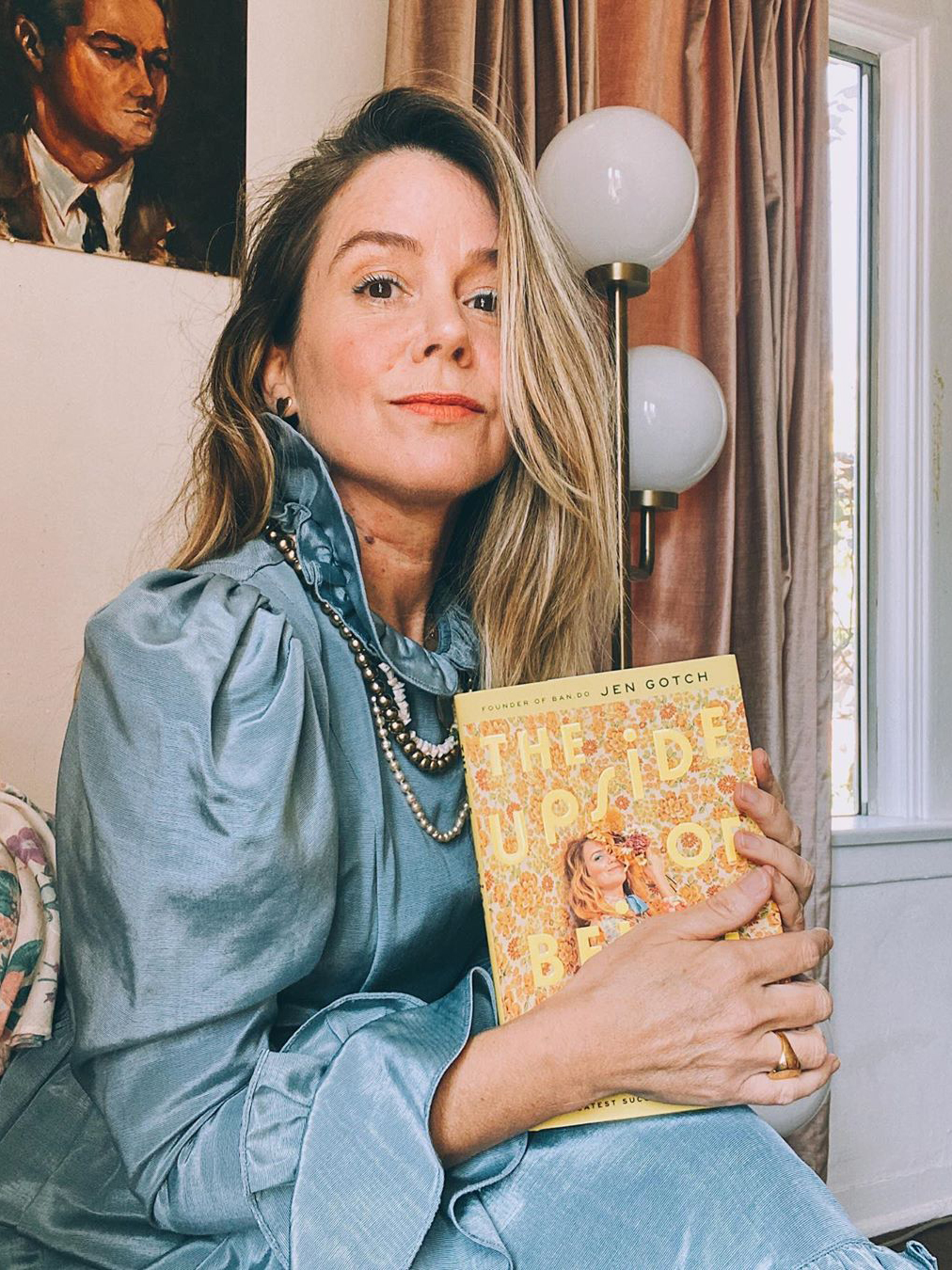
Shifting the conversation a bit, how have you tried to make your own company and employees feel comfortable with expressing emotions at work?
I sort of ended up working in an office and at a company, and I didn't have prior experience doing either. I did not come equipped with the rules of what you should and shouldn't do and the idea that there's business behavior and not-business behavior.
In the early days, it was an emotional place because I was there, and I'm an emotional person. I think where things get misconstrued when we talk about emotions in the workplace is that people think that just means people are getting emotional all the time. It's certain for me at times that I have had an irresponsible display of emotion, like having some sort of a breakdown in my office and crying on the floor. It's something now I understand I should've scooped myself up and done that in private. But I think feeling your feelings and handling them responsibly is really important. And so it's something that I've worked to really hone and refine over the years. Maybe as I haven't been feeling as raw as I once was, I'm able to encourage a really responsible way [of doing things].
On the other side of that, our culture is very familial, the girls are friends, it's a very respectful environment, and there's not really much controversy there. And so it's like creating that safe space even if those negative emotions don't have to play in very often. I think it's more about creating a place where people feel safe in the off chance that that does happen because of the amount of the time that we spend at work. It's sort of like why it feels okay to cry among friends because you feel safe.
It's nice to feel safe at work, especially when you think about it how much time you spend there versus how much time you spend with your family or friends.
All your time. The thing is, regardless of your job, it's like you're depending on people. You're trusting. You're problem-solving together. You are building a form of intimacy. So to me, the idea to have all of the things for intimacy and then not be able to emote seems very stagnating.
I work in a very creative environment. And only now since I've talked about it so much, I'm realizing, especially in non-creative environments or sometimes even in other creative environments, is some people do go to a job where they don't feel safe or that they could speak their mind or share their feelings. I realized now how fortunate I am to have not that. Could you imagine me in a place like that? They'd ask me to leave quite quickly.
Why do you think it's okay to cry at work?
It's like, why wouldn't you? I think the key is really, how do you do it responsibly? Probably more than like, "Is it okay?" I mean, I feel like if you're doing it responsibly, it's not a question. There are people that I have talked to that have said, "No, I don't think that should be a thing" or are very put-off by me saying that. It's like they're scared of what they're going to come in contact with emotion-wise, and they don't feel equipped to handle it. I think underneath all of it, it's that. And so I think if those of us who advocate for it are like, "Yes, but let's talk about why and do it in a responsible way." Then I think that's how we kind of start to chip away at it.
And what advice would you give someone who doesn't work at a very emotionally friendly office?
Protect yourself first and foremost. Being responsible with your emotions is, I think, the best way to serve as a point of entry. Building your self-awareness and understanding self-regulation and an appropriate display of emotions is really important.
I would also say find an advocate at work, so whether that's a co-worker, your manager or director. I think there's no way you couldn't find one person. I mean, gosh, if you can't, that just makes me super sad. I think having that one person in the office with you could be really helpful so that if you feel like something is going to happen or you're just having an off-day or whatever, that you can find that person or let them know.
Then the last thing I would say is challenge the leaders of your company to make it a safe place to show emotions. I mean, I think there are a lot of places in which employees have a lot more power than the employers because there's more of them. And I think the idea of just saying like, "We don't want this anymore," gather a group and start advocating for it. And again, I think those things done in a rational or responsible way might actually get through.
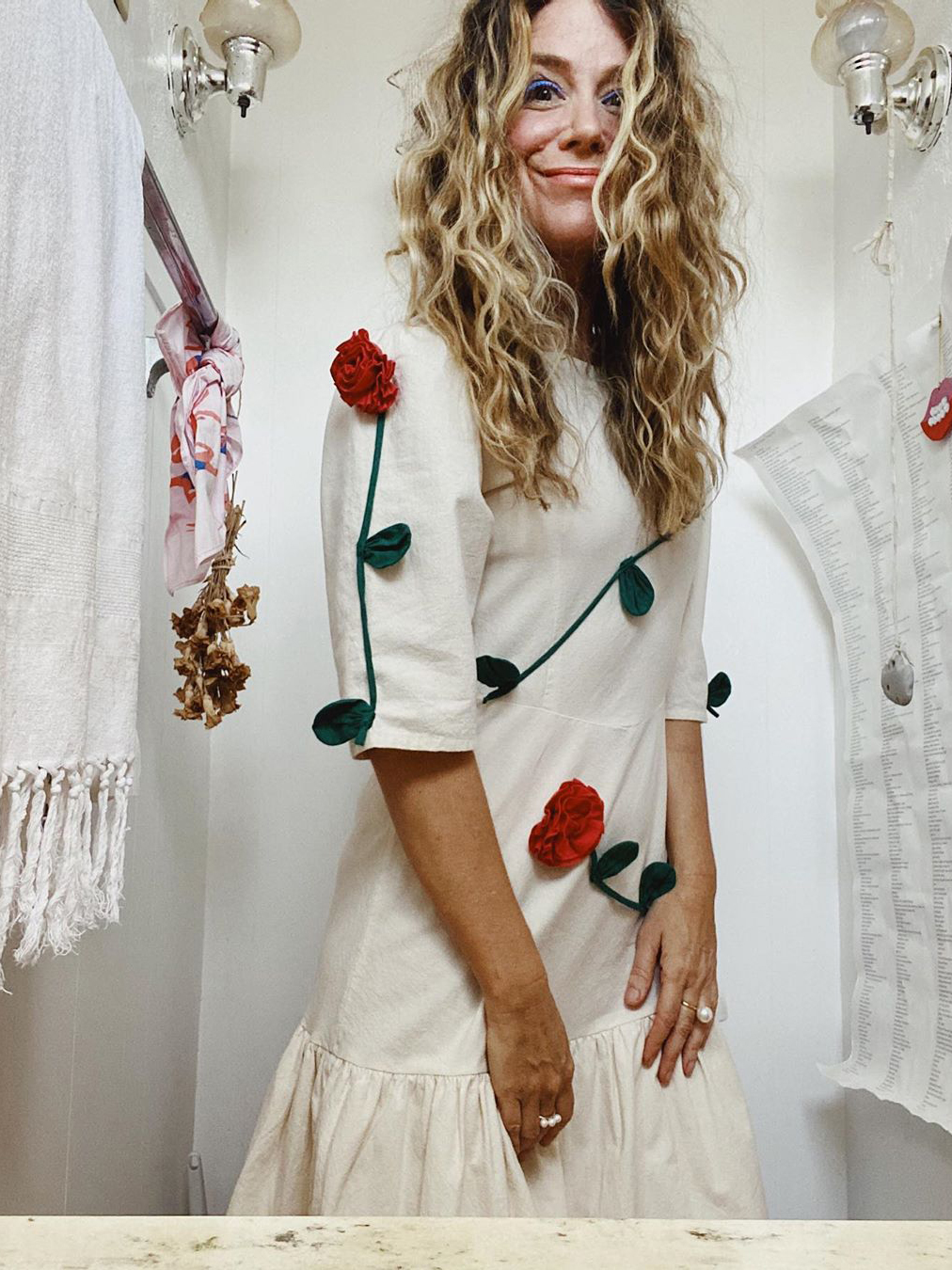
It seems that constant stress, the need to be "on" or available at all times (on our phones), and the idea of the "grind" and how you're not successful if you're not overworking is taking a toll on women's mental health. What are your thoughts on this idea? And what do you do in your life to avoid that and set boundaries, and what do you suggest for others?
I'm on the other side of that, so I can certainly speak to it. I definitely was one of those people who wore my busyness like a badge of honor and really equated success with how physically and emotionally depleted I was from work. The more depleted I was, the more successful I must be.
And I do think it's something that's been really glamorized in social media—although positive in so many ways. This is one of the ways where maybe it's not as great as it's like in the portrayal. I think especially with women in business, what is being shown to everyone as success is balls-to-the-wall, sacrifice everything, grind, grind, grind. And you know what? For a while, it feels really good. I loved it. I mean, I had a real sense of purpose, and I felt like I was moving the needle. In reality, it just puts you in a place of having tunnel vision and you're feeding into this one thing, and meanwhile, everything around you is kind of falling apart and you can't even get out of the trance long enough to realize it.
For me, I had to hit a really low low physically, mentally, emotionally. I mean professionally, I was doing fine but everything, financially, it was a disaster. What I write about in the book is I really had kind of a nervous breakdown. It just wasn't good. I went to the doctor and had bloodwork done and she asked me, "I mean you're fine. What are you doing for fun?" And I was like, "What are you talking about? Well, I work all the time. I love it. It's super fun." She just looked at me like, "What is wrong with you? It's so important for your holistic health that you're actually honoring time to have fun." That was a real turning point for me because it gave me a chance to step back. Meanwhile, here I am at the helm of the most fun brand, and I was like, "What the fuck do you mean fun? How dare you suggest that I stop working?"
What I found is that productivity really isn't different. It just feels different. In reality, I think for me, I have a good four hours on me every day. It gets spread over an eight-hour time period, but that's my reality. Sometimes, I just wake up, and obviously, my job is a little bit different, but oftentimes, I wake up really early and start working at 6 and by 10, I've done a full day's worth of work, and I can just do something else. Whereas five or 10 years ago, it was morning, noon, and night, sleep for a little bit, back up.
I think that it's actually a responsibility of people like me to sort of serve as a warning and to start curbing that and stop equating one with the other, because to me, the more peace you have and the more balance you have is the true form of success.
You're not afraid to be vulnerable and let people know your struggles. Why do you think that's important as a leader in your company and also a public figure?
The way that I am now is the way that I've always been. I just didn't have a platform, so I didn't do any of it consciously. Not to say that that's a bad thing; I see a lot of people making a concerted effort to flip over to that. And I think that that's a huge deal especially when it's tough. It's just never been something that's tough for me. What I realized as my platform grew and I became more associated with mental health advocacy—I feel vulnerable in other ways. This is just not one of those ways. But to understand what was being reflected back to me about how just that simple act of speaking my truth without any shame helps other people that don't feel like they're ready to do that and it removes the stigmas, especially when it comes to mental health, it also demystifies a lot of things like business, success, and all of those things. I think the more that I or anyone else in my position can do is... Let's just be real. It's nothing to be ashamed of because everyone is going through the same thing—that's what you find out quicker than anything else. I mean, how awesome is that for me to be able to just be myself and do that and know that maybe it's laying the groundwork for other people.

Why was it important to you to write about your mental health struggles in this book? What do you hope readers take away from this?
I think I mostly thought it was important because someone offered me a book deal if I wrote about my mental health struggle. I think I was just really wanting to write a self-help book, but they were like, "No, it should be a memoir. I mean, if you're comfortable talking about all of this." [What we talked about] earlier with me just being vulnerable and public about that stuff—to understand the impact that that can have on people, it's far beyond what I realized.
I talked about a lot of things in the book. There's a through line of mental health, but it's divorce, financial stress, not knowing what you want to be when you grow up, and when you're grown up, medication, and all of that. I think it's the fact that you can have all of those struggles and also have success in tandem with it was a really important thing for me because I didn't realize that people thought that they were mutually exclusive. You might be more on one side than the other at certain times in your life, but I felt by actually showing proof through my life story that people may feel comforted by that. I think the other hope was that in reflecting people back to themselves in that way, then it would build their self-awareness and emotional intelligence, which are a few things I've talked about a lot in our conversation. And have them feel less alone in their struggles because that's the other thing that I hear the most is people just saying they have felt so alone until they heard me or were able to take some of my words and talk to someone else.
Next up: 14 Ways You Can Stand Up for Yourself, Even When It's Hard
This article is provided for informational purposes only and is not intended to be used in the place of advice of your physician or other medical professionals. You should always consult with your doctor or healthcare provider first with any health-related questions.
Sarah is lifestyle writer and editor with over 10 years of experience covering health and wellness, interior design, food, beauty, and tech. Born and raised in Los Angeles, she attended New York University and lived in New York for 12 years before returning to L.A. in 2019. In addition to her work atBest Knockoff Luxury Clothing , she held editor roles at Apartment Therapy, Real Simple, House Beautiful, Elle Decor, and The Bump (sister site of The Knot). She has a passion for health and wellness, but she especially loves writing about mental health. Her self-care routine consists of five things: a good workout, “me” time on the regular, an intriguing book/podcast/playlist to unwind after a long day, naps, and decorating her home.
